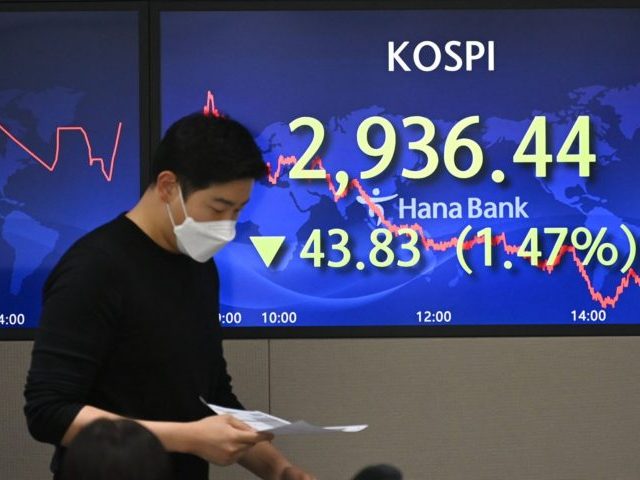THE REAL ECONOMY... AFTER ALL THE LIES ARE PUT ASIDE
I Wish Everyday was Thanksgiving - The Calm Before the Storm
Ask Prof Wolff: Economic Analysis - Real and Fake,
Stocks Tank on Fears of New Covid Variant, Dow Drops 890

U.S. stock markets opened sharply lower Friday morning as investors grappled with the fears of a new Covid variant found in South Africa but now spreading to Asia and Europe.
The Dow Jones Industrial Average fell by as much as 890 points, or around 2.5 percent, after the opening bell. The S&P 500 tumbled 1.9 percent and the Nasdaq Composite slipped by 1.4 percent. The small-cap Russell 2000 sank 3.25 percent.
The U.S. equity markets are scheduled for a 1 p.m. close.
The travel sector was particularly hard hit. Carnival Cruise shares were down 11.21 percent and Norwegian shares fell 10.21 percent. United airlines shares were off by 9.6 percent, American Airlines fell 8.8 percent, and Southwest Airlines sank 5 percent.
All around the world, stocks are falling in a broad sell-off. Oil and gasoline is also selling off.
London’s benchmark fell 3 percent and Tokyo lost 2.5 percent. Shanghai, Frankfurt and Hong Kong also declined sharply.
Some European countries already tightened anti-virus controls this week after their own case numbers spiked. Austria imposed a 10-day lockdown, while Italy restricted activity by unvaccinated people. Americans were advised by their government to avoid Germany and Denmark.
The 27-nation EU proposed the travel suspension to member governments after South Africa said the variant was spreading in its most populous province. Britain banned flights from South Africa and five nearby countries.
“Investors are likely to shoot first and ask questions later until more is known,” Jeffrey Halley of Oanda said in a report. That was evident from the action in the bond market, where the yield on the 10-year U.S. Treasury note fell to 1.54 percent from 1.64 percent on Wednesday. The bond market was closed Thursday in the U.S. for Thanksgiving.
In midday trading, the FTSE in London fell to 7,099.69 and the DAX in Frankfurt lost 3.1 percent to 15,429.26. The CAC in Paris plunged 3.8 percent to 6,805.72.
On Wall Street, the future for the benchmark S&P 500 future lost 1.7 percent and the futures for the Nasdaq slipped 1 percent. U.S. markets were closed Thursday and are due to reopen Friday for a shortened trading session.
In Asia, the Shanghai Composite Index lost 0.6% to 3,564.09 and the Nikkei 225 in Tokyo declined to 28,751.62. The Hang Seng in Hong Kong tumbled 2.7 percent to 24,080.52.
Investors already were more cautious after Federal Reserve officials said in notes from their October meeting released this week they foresaw the possibility of responding to higher inflation by raising rates sooner than previously planned.
Investors worry central bankers might feel pressure to withdraw stimulus earlier than planned due to stronger-than-expected inflation. The Fed said earlier it foresaw keeping rates low until late next year.
Financial markets had been encouraged by strong U.S. corporate earnings and signs the global economy was rebounding from last year’s history-making decline in activity due to the pandemic. Stock prices have been boosted by easy credit and other measures rolled out by the Fed and other central banks.
In energy markets, benchmark U.S. crude fell $4.22, or 5.4 percent, to $74.17 per barrel in electronic trading on the New York Mercantile Exchange. Brent crude, the price basis for international oils, shed $4, or 4.9 percent, to $76.92 per barrel in London.
—The Associated Press contributed to this report.
No comments:
Post a Comment